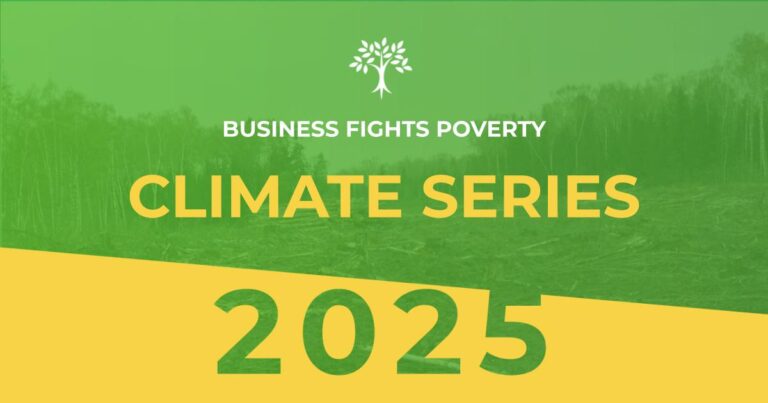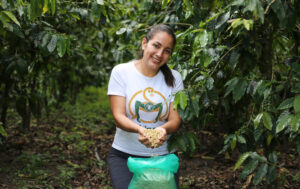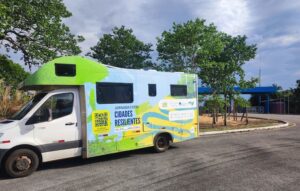In the nonprofit world, organizations often talk about bringing community members in to have a seat at the table. This is especially true as organizations now work to meaningfully respond to persisting inequity in the nonprofit space. However, at The InteRoots Initiative – a United States-based philanthropic organization that works both domestically and globally – we believe there is a need for an entirely new table. These new spaces should be created by communities, making sure initiatives are firmly rooted in community priorities, systems and norms.
This requires a fundamental shift in approach. Instead of assuming that something needs to be brought to a community to address the challenges it faces – this is the colonial mindset – the question should instead be how a new “table” can be created that brings to bear the wealth, talent and resources already existing in a community in pursuit of change. Once this new table is built, a community can define the terms that are used to invite others to the effort, and thus curate the type of partnerships that will best serve its self-identified needs. This concept is not unique among nonprofits. Real-world applications and proofs of concept, however, are hard to come by. InteRoots was designed to catalyze and test these community-based systems, which sets us apart from other nonprofits throughout the world.
InteRoots is a startup; we’ve been around for a handful of years. But in that time we’ve made some tremendous strides, working domestically in North America as well as internationally with communities in Uganda, where one of our co-founders is from.
In that short amount of time, we have learned some key ideas that we think have helped our organization grow and flourish. These takeaways are ideas we would like to see other organizations use and develop and bend and mold to fit their own needs.
Below we highlight some of the key elements in creating the right environment to decolonize philanthropic initiatives:
Communities must MAP the way
Too often, philanthropy is driven by the people giving the money. This dynamic persists on all levels of the decision-making process; philanthropic organizations continually adjust their messaging, resource allocation, and programming to cater to the perceived or expressed needs of donors. Although donors are a valued element of any philanthropic endeavor, prevailing donor-centric models, whether intentional or otherwise, perpetuate a dynamic of “haves” and “have-nots,” in which the “haves” effectively set the expectations of the relationship. This disempowers community-based initiatives and undercuts systemic change. Organizations have identified this as an issue, but are often at a loss when it comes to effective approaches in developing community-led initiatives while maintaining a strong support network. We believe this perceived trade-off is a fallacy, and the difficulty in shifting organizational focus has more to do with inertia than feasibility. So where does an organization start?
At the most basic level, it is important to begin by accepting that community-led initiatives in practice will be different for each community. This begins with listening to the community, on its own terms, so that a framework can be cultivated in which the philanthropic organization works as a responsive partner as opposed to a benefactor.
InteRoots has engaged in this process with three different communities to date, and in the interest of sharing experience that may benefit the sector at large, we have identified a few structural elements that are important in projects that are pursued in a decolonized way. The MAP framework below is one way InteRoots communicates its approach to other organizations.
Communities must have control of three basic pillars of the development process: Mandate, Accountability, and Proprietorship. Together, these elements “MAP” a way forward. The first is a clear Mandate from the community. This is accomplished through the establishment of some body that is perceived as legitimate, representative, and trusted by the community to work toward community solutions. These structures may already exist or be unique to a new project/goal identified by the mandated body. Accountability refers to systems and processes developed or assigned to an initiative that ensure equity and fairness for all participants. It is important that these systems are acceptable to all at the table, but it is necessary that the systems are developed by and rooted in the norms of the deliberative body mandated by the community. The result of this process is the creation of an infrastructure through which a community measures success on its own terms. These internal metrics may be verified by an external organization through what we have come to call determination of “community compliance,” but the end result is self-affirmation and self-regulation; necessary elements for sustainability. The last pillar, Proprietorship, speaks to the absolute necessity for the inputs, outputs, and project mechanisms to be owned by the community. This is both in perception and contract. For a community to embrace new institutions, they must know that these institutions are not under the influence of any external entity. This is a more nuanced issue when it comes to philanthropic work, but achievable through the implementation of what we call “mitigating systems,” in the way work is done. The most salient example is through communication practices.
Communication by the community and for the community
I began this conversation by discussing the importance of “creating an entirely new table.” Internally, this starts with communication and how words are used. We are very cognizant of the often-used “us vs. them” language in our approach and messaging. We make sure to eliminate this colonial linguistic model in everything from internal documents to storytelling narratives to press coverage. But more important than changing the words we use, it is important that the conversation comes from the community itself.
We do this first by integrating the community into our organizational structure. Every project has a representative on our Board of Directors, and all project oversight is overseen by sub-committees led by those directors. More importantly, our organization does not communicate with the community directly. All communications are carried out by “Project Liaisons,” who are trusted by the community and the organization to translate norms and essentials effectively. In this sense, all communication with the community comes from the community itself, and in ideal circumstances, the community does not perceive that we are involved at all.
When communicating with the public, it’s paramount that we work together and coordinate our communication work to be rooted in the community’s desired narrative. Storytelling should ideally come from the community, and when not possible, it should be approved by the community’s mandated body or designees. This can be done in a variety of ways, although most effective is providing resources, when asked, to support community-led storytellers and tools to enhance how a community shares its own stories. In essence, shifting organizational communications from a champion model to that of a support platform fosters initiatives with tools that will serve the community for years to come.
Shifting the framework of communications is just one example of many that we have found to be valuable in decolonizing philanthropic work. We hope you and others will add to the conversation of how to decolonize philanthropy as well. In the end, all that we have to lose is inertia.










